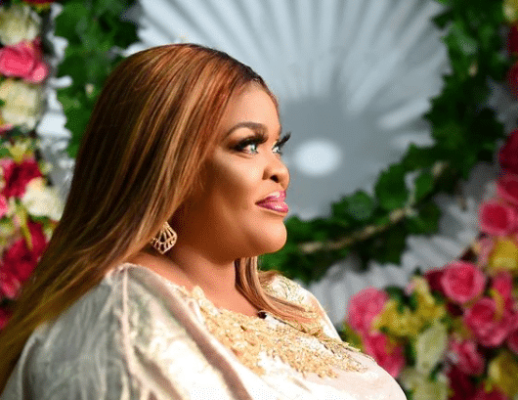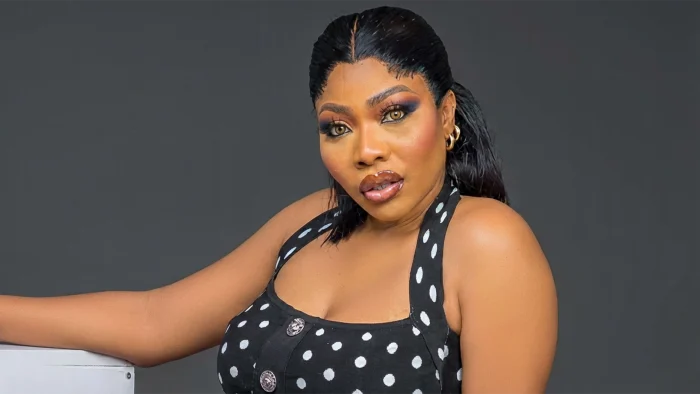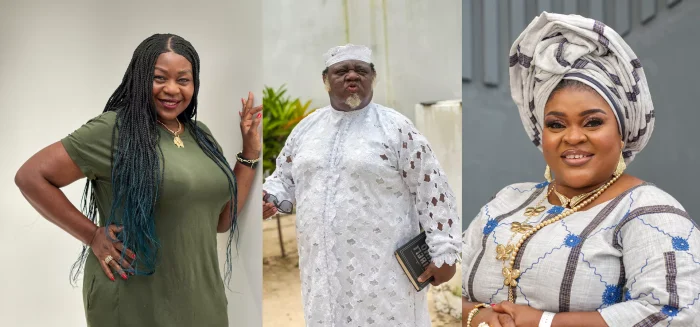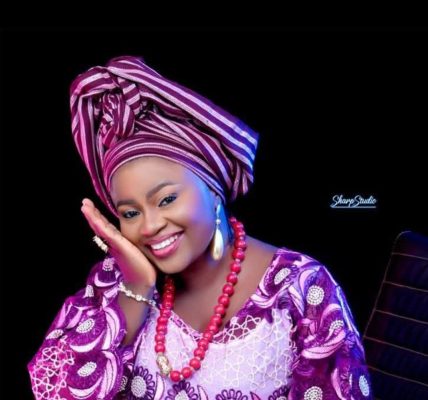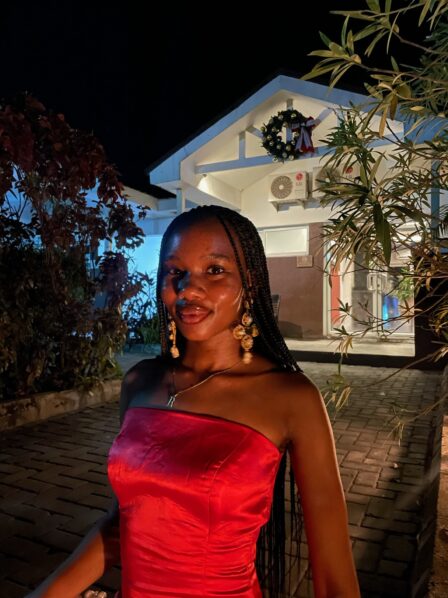
In the heart of Africa, a cultural and economic revolution is quietly unfolding within the seams of the fashion industry. In the vibrant tapestry of Nigeria, often overshadowed by the prominence of oil, the budding fashion sector has emerged as a beacon of untapped potential, poised to be a leading driver of economic growth in the nation. The fashion industry emerges as a powerful force for change and could be our catalyst for economic development. This article aims to dissect the intricate and multifaceted layers of the Nigerian fashion landscape, exploring the undeniable potential the industry holds while illuminating its rich cultural underpinnings, economic implications, and the nuanced challenges that demand strategic interventions for unlocking its unexplored potential. Despite having a critical need for investment, capital infusion, and skills development, the Nigerian fashion industry is a sleeping giant waiting to be awakened. The industry already plays a crucial cultural role and contributes significantly to the economy, with Nigeria accounting for about 15% of the $31 billion fashion and textile industry in Africa.
[ad]
In the pre-colonial era, Nigeria had a burgeoning textile industry with processes such as textile weaving, spinning, dyeing, ginning, and carding being well-established occupations. With over 250 factories operating above 50% capacity utilisation, it was recorded as the third largest textile industry in Africa after Egypt and South Africa. It was also the single largest employer of labour after the government, providing direct employment to about 350,000 people outside of the millions of indirect jobs created. In order to contribute directly to economic growth and national development, after the independence, governments emphasised the proper use of local raw materials hence the emergence of modern textile industries in the northern part of Nigeria with the first being the Kaduna Textile Mill.
The decline of Nigeria’s once-prosperous textile industry is a cautionary tale of neglect and systemic issues with high production costs in a fiercely competitive market being a primary concern. Additional hurdles such as over-reliance on foreign exchange for acquiring, maintaining, and replacing machinery exacerbated the industry’s challenges. Nigeria’s textile sector was labour-intensive, seriously implicating the competitiveness of its products. However, the limitations of fully automated systems in Nigeria are particularly due to inconsistent access to power, water, and basic amenities, further contributing to the industry’s decline. The prevalence of smuggling also served as a formidable obstacle with the government reporting $400 million in yearly loss at its hands. The collapse of this industry resulted in a significant and persistent loss of employment, with 100,000 workers in 1995, 50,000 in 2004, to only 30,000 workers by 2007. Government initiatives from outright bans on imports to the establishment of textile intervention funds worth up to $70 billion, pioneered by Obasanjo’s administration, aimed to breathe life back into the sector but had very limited success. However, the industry’s success hinges on addressing structural challenges, including energy poverty, the need for modernisation and the development of infrastructure, particularly e-commerce. A shift towards automation and energy efficiency is essential for its competitiveness on the global stage.
In a conversation with Omoyemi Akerele, the founder of Lagos Fashion Week, the essence of the fashion industry’s impact on society unfolds. She emphasises the interconnectedness of fashion with the broader economy, stating, “People see garments on the runway but they forget that behind the runway, there’s a whole economy of people, a whole ecosystem, supply chains, production, and new line production.”. Akerele underscores the transformative power of fashion beyond mere creativity, highlighting its role in commerce and job creation. The interview paints a vivid picture of the joy and fulfilment derived from being catalysts within the fashion ecosystem, connecting people to opportunities and uplifting communities.
Historically, Nigeria’s fashion industry has played a crucial role in employment generation. However, it now stands at a crossroads, requiring strategic investments to unlock its full economic potential. With rising household incomes, rapid urbanisation, and a fast-growing middle and upper-class consumer base boasting significant purchasing power of more than $28 Billion, the country presents exciting opportunities within the luxury and premium fashion market. In addition, Nigerians allocate a larger share of their income to fashion products than famous fashion realms like France and Sweden. The luxury segment, although catering to a small percentage of the population, offers high margins and remains largely unexploited. Nigerians exhibit a profound passion for fashion with a constant appetite for new and diverse fashion trends. The fashion industry has the capacity to absorb a large workforce, especially skilled and unskilled labour. From weaving and tailoring to design and marketing, the sector offers a spectrum of job opportunities that can address unemployment challenges and enhance the livelihoods of many Nigerians. Akerele prompts us to understand the role that fashion plays in creating jobs for people, stating “People don’t understand that fashion saves lives. That is my biggest mantra”. Fashion saves lives, a phrase that could ignite much dispute, nevertheless, the truth behind it is not diminished. This industry, still in the stages of infancy, is a latent gold mine yet to be unearthed.
In a Guardian article by Opeyemi Babalola, Princess Ronke Ademiluyi, founder of Africa Fashion Week Nigeria, advocates for leveraging fashion as a non-oil export to boost the nation’s GDP and is quoted saying “Our creative talents are already translating the fashion sector into wealth creation”. We have an abundance of creativity as a nation but these skills are often overlooked and rarely nurtured. Embedded in Nigeria’s cultural identity are the traditions of tailored clothing and the vibrant Aso-Ebi fabrics. These elements not only reflect the nation’s diverse cultural heritage but also provide a unique selling proposition in the global market. Nigeria’s fashion industry, anchored in sustainable craftsmanship and African wax prints, stands at the forefront of a movement towards low-impact production methods, aligning with global trends towards environmentally conscious fashion.
The traditional attire of various ethnic groups has long been a source of inspiration for both local and international designers, positioning Nigeria’s fashion industry as a beacon of innovation within the global fashion landscape. The effects of the pandemic have further emphasised the importance of buying locally, creating an opportune moment for the sector to thrive. The fashion label “Clan” for example is Nigerian-owned and had a strong presence in the Mercedes Benz Fashion Week Showcase in 2014. More recently, the “Africa Fashion” exhibit which originated at London’s Victoria and Albert Museum in 2022, opened at the Brooklyn Museum a year later, continuing the platform showcasing the best of African designs. Some of these Nigerians in the diaspora are repatriating to inject the local industry with the wealth of valuable experience gained, bringing much-needed structure and finance. From vibrant Ankara prints to intricately woven textiles, Nigeria boasts a unique and captivating expertise reflected through its clothing. By promoting indigenous designs and sustainable practices, the Nigerian fashion industry could carve out a niche for itself, solidifying its global market presence, and in turn attracting international attention and investment, boosting export revenues, and stimulating economic development. International attention will not only increase sales and lead to a higher national GDP, but it can also increase jobs in the tourism and hospitality industries. An increase in tourism will eventually lead to the development of the tourism industry as more hotels, restaurants, and attractions will be built to accommodate these visitors and provide more jobs for Nigerian citizens. Beyond economic benefits, the fashion industry has the potential to preserve and promote Nigeria’s cultural heritage as the incorporation of traditional prints and patterns in contemporary designs reflects our rich history.
In the past, wealthy Nigerians favoured international brands, leading to a reliance on foreign fashion products. However, this narrative is changing as global and luxury brands increasingly enter the Nigerian market. The effects of the pandemic, coupled with a growing interest in sustainable fashion, are redirecting consumer preferences towards local brands. The increase of online retail, supported by local debit and credit card firms, partnered with the rise of quality shopping centres, boutiques, and outlets with international standards is transforming the market. Akerele, a vessel of wisdom, cites a crucial point that “in today’s world, one of the biggest tools of survival is agility. As a company, as a business, as a human being”. Our ability to adapt to the ever-changing economic climate as a nation is pivotal in ensuring our growth and prosperity. Albert Einstein once said: “Insanity is doing the same thing, over & over, and expecting different results”. Akerele encourages us to not be “afraid to go back to the drawing board” as a challenge merely creates an opportunity.
[ad]
To harness the untapped potential of the Nigerian fashion industry, a comprehensive approach is the way forward. The need for investment, capital, skills, and managerial training is evident. One of the primary obstacles faced by the industry is the scarcity of financial resources. Access to affordable credit remains a challenge for many fashion entrepreneurs, limiting their ability to scale their businesses. Increased investment, both from the public and private sectors, is crucial for financial stability. Akerele identifies key challenges facing the industry and according to the fashion mogul and CEO, the first order of business is tackling Nigeria’s power problem. Energy poverty remains a pressing setback and she points out that solving this is paramount for productive manufacturing. “For as long as the power problems remain, it’s always going to be counterproductive as the cost of manufacturing in Nigeria will always be a thing.”. Addressing the issue of energy availability at affordable prices is vital for sustained growth. Her second focus is infrastructure, “We need factories, factories that are accessible but having factories doesn’t make sense when you cannot source locally. There is no way people will come and manufacture in Nigeria if they don’t have access to textiles or raw materials” leading us back to the need for a revival of our textile industry.
“My coping mechanism is to stop thinking about problems and start thinking of solutions”
– Founder of Lagos Fashion Week Omoyemi Akerele

The government’s role in supporting the industry’s progress is consequential. Access to credit and favourable government policies, down to legislation, can further stimulate sustainable development. The Central Bank of Nigeria (CBN) and the Bank of Industry (BoI) are two institutions that have tried to fill this need. The Nigerian government’s past neglect of the fashion industry is shifting, with initiatives like the 1 Billion Naira fund from the Bank of Industry for Small and Medium Enterprises (SMEs) in the industry in 2018. This injection of funds has led to increased capacity utilisation, rising from 29% to 50% in 2021, creating over 8,000 jobs. This demonstrates a commitment to fostering growth. The CBN developed a fund that provides fashion entrepreneurs with low-interest financing. The arrangement, however, is limited in terms of what the loans can be used for. Several well-known designers have complained that the program just pays overhead costs like rent and does not allow them to invest in their goods or production methods. The prospect for growth lies in the fact that the present supply of local fashion goods does not correspond with the high demand of about 155 million consumer base. Manufacturing serves as a dependable source of wealth creation, playing a pivotal role in fostering rapid economic growth and facilitating the structural transformation of any economy, irrespective of its developmental stage. The government’s role in setting up training centres, providing funding for infrastructure, and integrating fashion design into the national budget will be critical.
“to be invested in something is to be invested in infrastructure — sourcing, power supply, education” – Founder of Lagos Fashion Week Omoyemi Akerele
The lack of formal fashion training facilities and a fragmented industry make it challenging for local designers to compete globally. However, the rise of online retail and increased access to information technology tools is creating opportunities for self-structured fashion design businesses. To run successful fashion and apparel-making enterprises, designers are expected to be familiar with different fields of the business. This includes market and trend research, consumer behaviour, product development, sourcing, production, marketing, distribution, and sales. Hence, investing in skills training programs for designers, tailors, and marketing professionals must be prioritised to bridge the gap between traditional craftsmanship and modern market demands, with business and management being a focus in fashion schools.
Akerele brands herself as an incurable optimist, expressing her desire to contribute to something bigger than herself. She shared that although “you might not set out to make an impact, you set out to follow your heart” and her heart has led her on this journey. She is empowered by the joy of seeing her work positively impact communities across Africa and believes in the power of fashion to save lives, seeing it as a significant source of income for Nigerian youth. Her optimism is grounded in a pragmatic approach, urging a shift from focusing on problems to actively seeking solutions.
The Nigerian fashion industry is not just about clothing; it’s about economic empowerment, cultural preservation, and global recognition. As the nation embraces the digital age and globalises its markets, the fashion industry stands at the forefront, ready to weave a story of economic resurgence and sustainable progress, unleashing a potential economic powerhouse. With strategic investments in energy, education and skill development, and effectively addressing key infrastructural challenges, allowing for increased manufacturing and competitiveness, Nigeria can establish herself as a prominent player on the global stage. The concerted efforts of the government, private sector, investors and stakeholders are imperative. As the industry matures, it cannot only contribute significantly to the nation’s GDP but also create employment opportunities, foster entrepreneurship, and showcase Nigeria’s rich cultural heritage internationally.
[ad unit=2]



